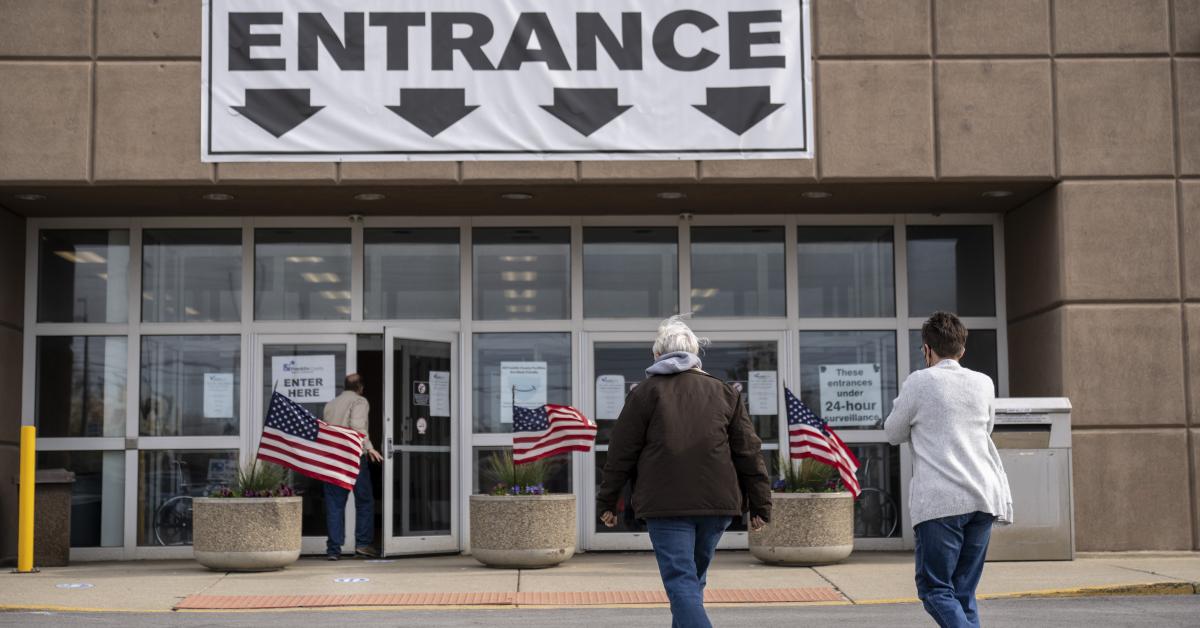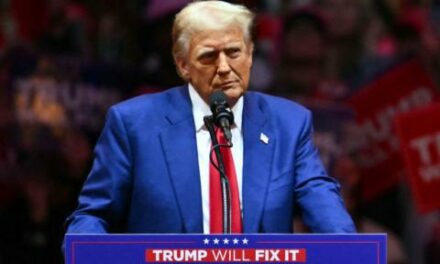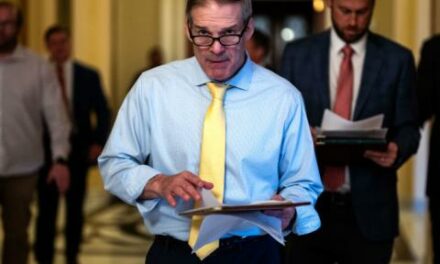We support our Publishers and Content Creators. You can view this story on their website by CLICKING HERE.

Republicans’ early voting ground game changed the math this election cycle among low-propensity voters, allowing President-elect Donald Trump to make a historic comeback for a second term in the White House.
The presidential race was called for Trump early Wednesday morning, with nearly all the swing states being called for the former president though a few are still outstanding. Republicans and a prominent pollster explained how focusing on getting low-propensity voters to vote early helped Trump win battleground states.
Pollster Scott Rasmussen explained that early voting has become a tool – new for them – that Republicans have decided to come around on. “I heard from a lot of Republicans who said, you know, ‘I don’t like early voting, I don’t think we should do this, but we have to win if we want to change the rules.’ So, you know, I don’t think this is an issue that’s going to go away, but it has changed the game,” Rasmussen told the “John Solomon Reports” podcast on Wednesday.
“Totally in the game”
“This idea of early voting is a relatively new phenomenon,” Rasmussen explained. “When I started polling, it just didn’t exist except for absentee ballots. And in 2020, because of the pandemic, it took on a new form in ways that we never could have imagined just a couple of decades back.
“But Republicans now are totally in the game, and I think it changes it,” he continued. “And you know, we’re talking about some of these races are still going to be very, very close, and if you just assume that a small fraction of those early voters might have missed voting on Election Day – I mean, it happens people wake up, they plan to vote, and they’re sick, or something is happening at work – so those getting those votes banked early is one of the keys to this victory. Again, you go back to the fundamentals of the economy, a couple of other issues that supported it, but the tactical part of early voting was another contributing factor to this victory.”
Former New York congressman Lee Zeldin (R) told the “Just the News, No Noise” TV show on Wednesday that America First Works (AFW) focused on 47 battleground state counties in its ground game to get low-propensity voters to cast their ballots.
Zeldin said that AFW focused on “low-propensity voters, no propensity voters, people who didn’t even vote in 2020 but we knew that they were going to vote for President Trump if they showed up, and we got them out. What started in an effort with America First Works targeting 19 counties became a Project 47 at the end of the day, expanding to” 47 counties “in these battleground states, knocking on doors – not just dropping off literature and walking, but having conversations.”
He explained that planning for this started in April, when a meeting with “over 50 conservative groups, over 80 conservative leaders” occurred to discuss “what we needed to do with the ground game, what we need to do to secure the vote, litigation, and lawfare.” The coalition worked together in get-out-the-vote efforts in swing states, Zeldin added.
“We knocked on many millions of doors, having those conversations, as I mentioned, all across all the battleground states, with what was 47 counties at the end of the day,” he said. “We were registering voters, 10s of 1000s of new voters.”
“How great was it, looking at the early voting numbers in all seven of the battleground states, President Trump doing better going into election day than he was four years earlier,” Zeldin said, adding that they “were working as closely as we were allowed to with the Trump campaign” and the Republican National Committee, which was very focused on election integrity this year.
The importance of voting
“We should be talking about an after action report, even though we won, what worked?” he noted. “What do we need to do going forward to make sure that we continue to do what works, that we learn our lessons, not just when we lose a race, but us when we win.”
AFW Executive Director Ashley Hayek told the “John Solomon Reports” podcast on Wednesday that conservative organizations looked to improve their ground game this election cycle. Following the results of the 2022 and 2023 elections, Hayek said, “it was very clear that we needed a new plan for the country that could focus on early vote and really target no and low-propensity voters – so people who didn’t vote in 2020, who aren’t likely to show up at the polls – that we can grow our base.”
Effectively communicating the importance of voting to low-propensity voters is what AFW focused on, in alignment with other conservative organizations.
“These elections have consequences, and you know, your $4 orange juice is now $8. And our country is no longer safe with fentanyl and drug cartels and human traffickers, and so how do we get those stories?” Hayek said. “And that was the initial idea, was targeting these voters, and then that transformed into just building out the movement.”
“And we have so many incredible conservative organizations, whether it’s Turning Point Action, Chase the Vote, AMAC Action, Tea Party Patriots, Hunter Nation, and being able to all of us work together like never before, we are 1,000 times more effective, which is exactly what we saw in this election.”
5.7 million voter contacts a key to success
Getting people to cast their ballots was accomplished by treating them as customers rather than just voters, Hayek explained. “So the idea was to stop treating voters like just voters, and to start having real conversations and view this as a business. And now our voters are now our customers, and we need to figure out how we are going to have real conversations with people and get survey information,” she said.
“We did over 5.7 million voter contacts, and there’s about 3.2 million total people that we talked to. But we would go back – to some places, we would go back two or three times, and other places, it would be maybe one time, because they were all in and we identified them and had a great conversation.
“We were able to obtain over 752,000 surveys where people took the time and answered our questions, which was absolutely phenomenal,” Hayek continued. “And then also, we launched a very unique texting program where we had over 50 people who would engage in conversations through text message, as well. So either at the door, having those surveys, or through text messaging, we were having real conversations with people about issues that they cared about.
“That infrastructure that we created, we were able to obtain 82 billion data points across 74 million voters. So it was absolutely incredible the amount of information that we’ve been able to gather, and now it’s looking forward, what happens in the first 100 days of the new administration, where we can educate people through these personal relationships and continue to mobilize for these policies in the next year?”
The eight states where early voting efforts were focused on per AFW’s data were Arizona, Georgia, Michigan, North Carolina, Nevada, Ohio, Pennsylvania, and Wisconsin.
Trump has won the presidential races in Georgia, Michigan, North Carolina, Ohio, Pennsylvania, and Wisconsin thus far, according to the Associated Press. Arizona and Nevada have yet to be called by the news wire, but Trump is leading in both states.
Hayek explained that, overall in those eight states, the ratio of those who voted absentee or early to those whose doors were knocked upon was 40%. The number of people who voted and whose doors were knocked on was 1,285,690. The total number of people who voted and received texts was 3,131,141.
Georgia had the highest ratio of those who voted absentee or early to those whose doors were knocked on. “In Georgia, of the people that knocked and voted, it was 190,272 – a 61% ratio,” Hayek said. “That was one of our best states that we were in.”
According to AFW’s data, the totals of people who were texted about voting and had not voted in 2020 but did vote in this election were 138,717 in Arizona, 111,829 in Georgia, 59,661 in Michigan, 122,574 in North Carolina, 54,216 in Nevada, 107 in Ohio, 83,320 in Pennsylvania, and 36,416 in Wisconsin.
Hayek also said that her group is “definitely looking at” the 2026 elections.

 Conservative
Conservative  Search
Search Trending
Trending Current News
Current News 




